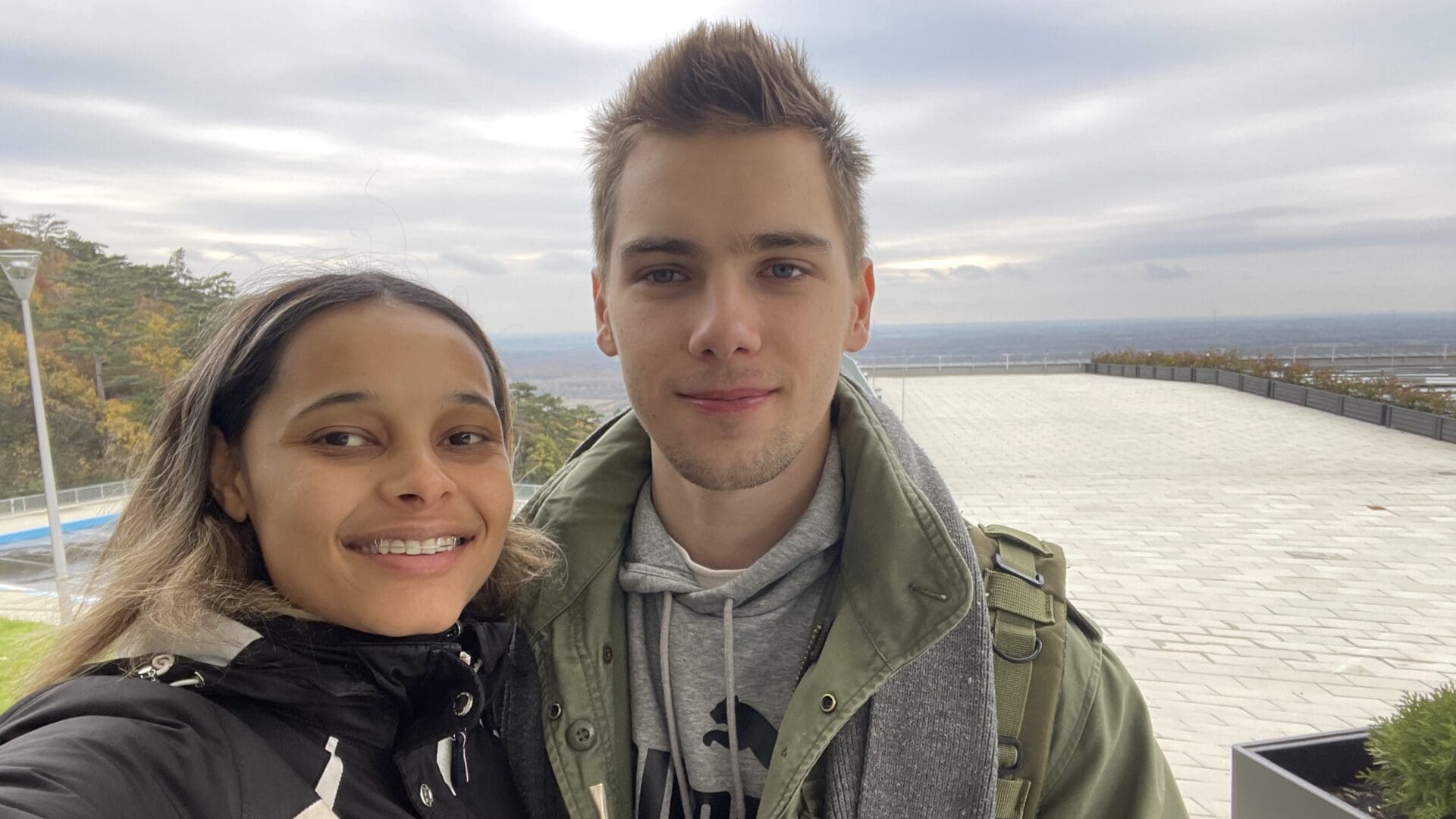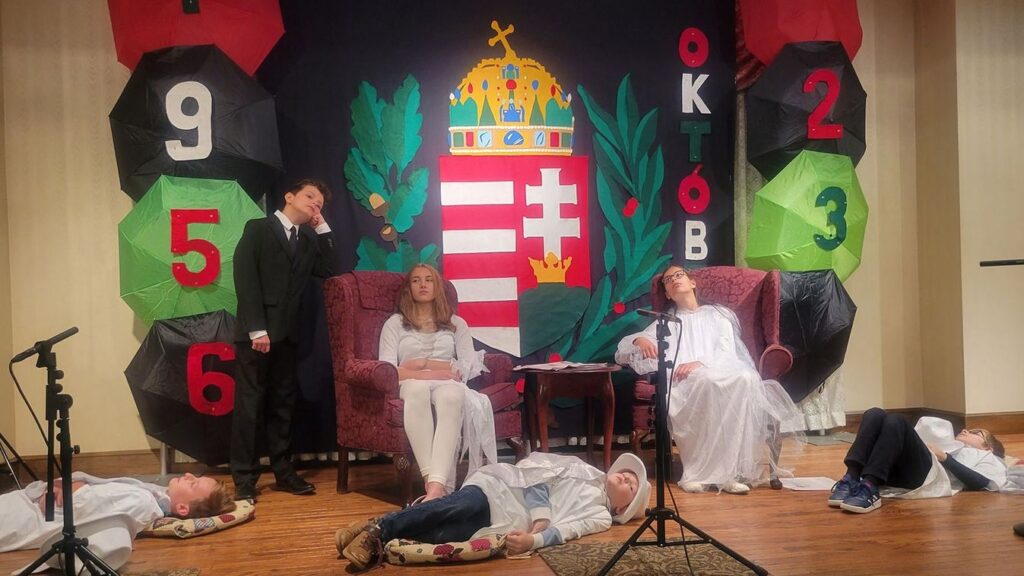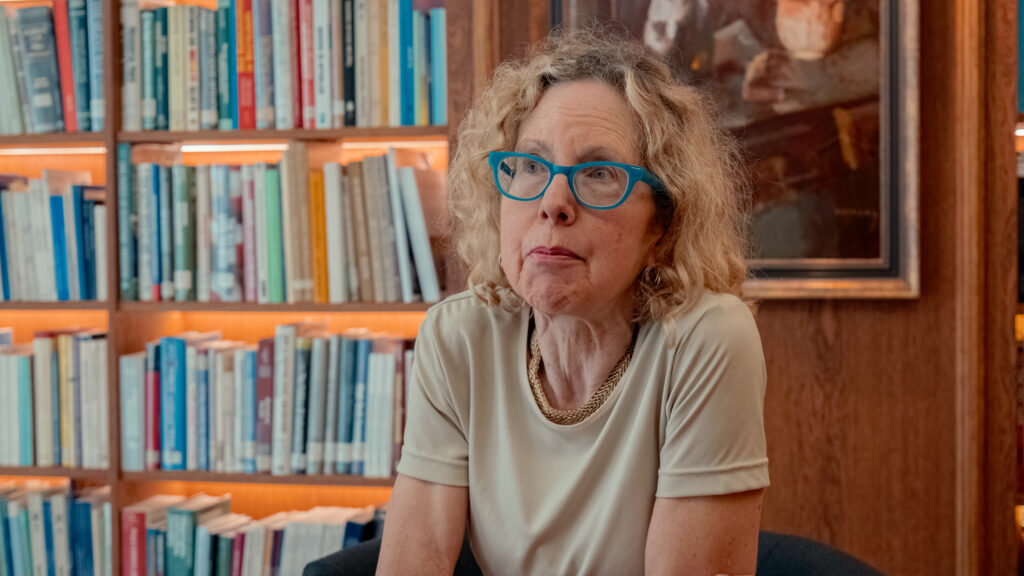23-year-old Tisza Fizli was born and raised in Los Angeles by a Hungarian father and an African American mother. Her closest childhood friends were Hungarian Americans through Hungarian folk dancing and scouting, and she has always spoken Hungarian with her father and visited Hungary several times with her family. After a year as a Balassi Scholar, she was accepted to Corvinus University in Budapest through the Diaspora Higher Education Scholarship Programme. She envisages her future in Hungary together with her Argentine Hungarian boyfriend.
***
Hungarian is not your mother tongue, you were born and raised in America, in a family with a mixed linguistic background. Yet you speak Hungarian fluently. How?
I was born and raised in Los Angeles. My dad moved from Hungary to America with my aunt and grandmother in the early nineties, at the same age I was when I headed in the opposite direction… I lived in Los Angeles until I was nineteen, then I studied in Hungary for one academic year with the Balassi Scholarship, and now I’ve been studying at Corvinus University for a year and a half via the Diaspora Higher Education Scholarship Programme. Hungarian is indeed not my mother tongue, but I feel it is, because my father and my grandmother have always spoken Hungarian to me. I speak English with my mother, since she hasn’t learned Hungarian. When I was three, my dad started to take me to Hungarian folk dance classes at the Carpathian Folk Dance Group in Los Angeles and to the local troop of the Association of the Hungarian Scouts in Exteris. I was a part of these groups until I was nineteen, and I’m still pursuing folk dancing and scouting, currently in Hungary. In my childhood, they were my community, and to this day most of my childhood friends are Hungarian Americans.
What attracted you to the Hungarian community in Los Angeles? They could be ‘only’ weekend friends to you, since you spent your weekdays with Americans.
I think the reason was that we really understood each other, because we had a very similar life: we went to American schools from Monday to Friday, but we spent the weekends (and parts of the summers in camps) together. We were scouting and folk dancing together, so we not only had a lot of experiences together, but we could also discuss, for example, how strange it was for us that we couldn’t talk about our Hungarian experiences in the American schools, because they didn’t understand what, for example, a Labanc or a Kuruc meant… We always had a good laugh about that. The common experiences and similar fate connected us, which I didn’t have with non-Hungarians, since I didn’t have any closer friendships in the American schools.
How did the idea of the first and then the second scholarship come about?
I had already been a university student in America for two years, when in 2021 I decided to suspend online education during the Covid pandemic and, since I had always wanted to live in Hungary, I applied for the Balassi Scholarship. During those ten months I met my boyfriend, who is Hungarian, born and raised in Argentina. After ten months came the big question: what next? We both decided to try to apply to Corvinus University. I had always wanted to study there, and he was also interested in economics, so we went to a university open day together to find out more about the details of the application process. We hadn’t heard of the Diaspora Higher Education Scholarship Programme at the time. A host told me at length about felvi.hu (the online application platform), but it didn’t help much, because as I was from America, I didn’t have transcripts from the Hungarian school system and I didn’t know the Hungarian higher education system at all. I was very sad because I felt that I would not succeed. But while I was talking to her, my boyfriend asked another host, and she mentioned to him the Diaspora Scholarship Programme. We were very lucky, since it wasn’t even advertised at the time and we didn’t know anyone who had heard of it, because it was a brand new scholarship and very few people knew about it. We both traveled home in December 2021 and applied for the scholarship, but we were only admitted in June, and we could come back to Budapest in September 2022. The application process was quite long and difficult, since everything was still very new; we had no information about how to fill in the application forms, and we had to fulfill the requirements of both the Diaspora Scholarship Programme and the university. Everything went well with the former, but there were some issues with the latter: notifications were not sent out on time, we often got last minute emails of what had to be submitted the next day, and there were times when we had to call the university from America or Argentina at three o’clock in the morning to inquire about something. During this lengthy process, we had to be very attentive to emails and deadlines. I have since helped several students apply, so I find it quite easy now, but at the time I felt that it was only for very determined and committed people.
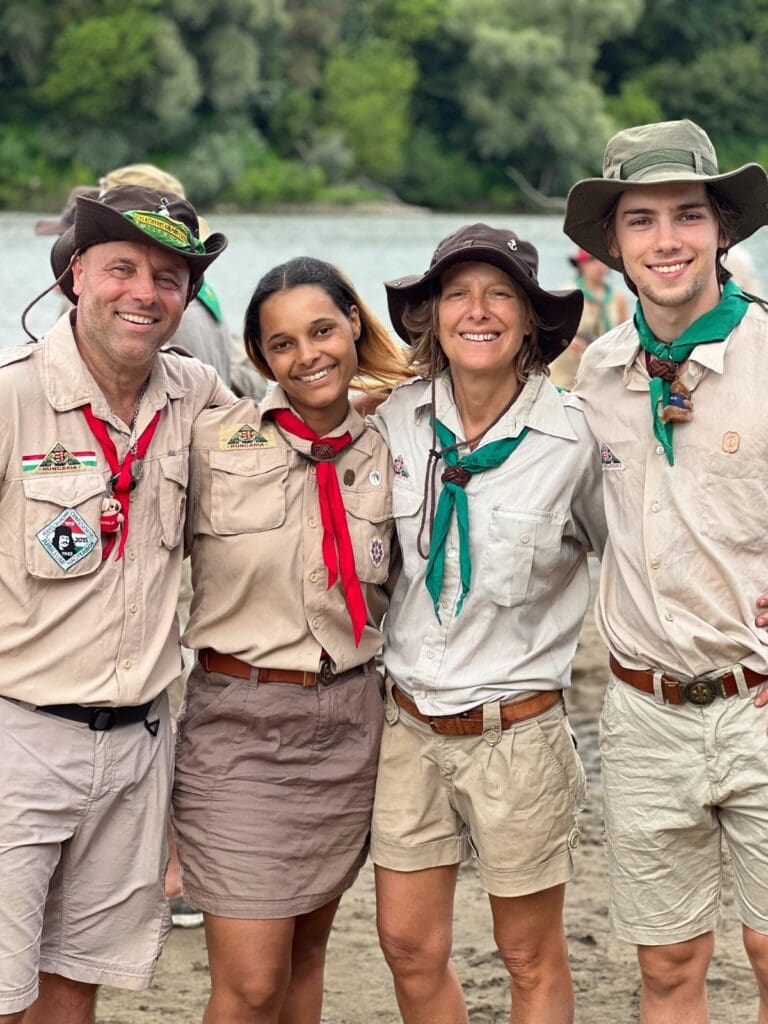
Why did you want to live in Hungary and study at Corvinus?
We traveled to Hungary every summer during my childhood until I was nine, and we have relatives living here. Then my parents divorced, and we didn’t come for a few years, but after I was fifteen we came more often again. When I was seventeen, in my last year of high school, I was here with my grandmother, thinking about what kind of university I wanted to go to. My grandmother took me for a walk to see Corvinus University, which I really liked. I wanted to apply at that time, but my grandmother got sick, so I decided to stay in America for a while to be close to her. But I ended up coming here, just a few years later, which I’m very happy about.
When you studied in Hungary with the Balassi Scholarship, it was rather coming back and fulfilling an old desire as opposed to just studying abroad. What was that first year like?
Indeed. It was very good. Being in Hungary is always very nice… When you arrive and walk out of the airport, you sense different smells, the air is different, the food is different… When I arrived, the Covid pandemic was still underway, and we were only allowed to be out until maybe 10 pm. I was a bit afraid of what it would be like to get along with the restrictions, but it caused no problem for me. It helped me a lot that through the Balassi program, I met people who grew up under the same circumstances as me, so there was a strong connection among us, we understood each other very well and we did a lot of activities together. We traveled a lot around Hungary, and we even spent a month and a half in Transylvania, but not through the scholarship.
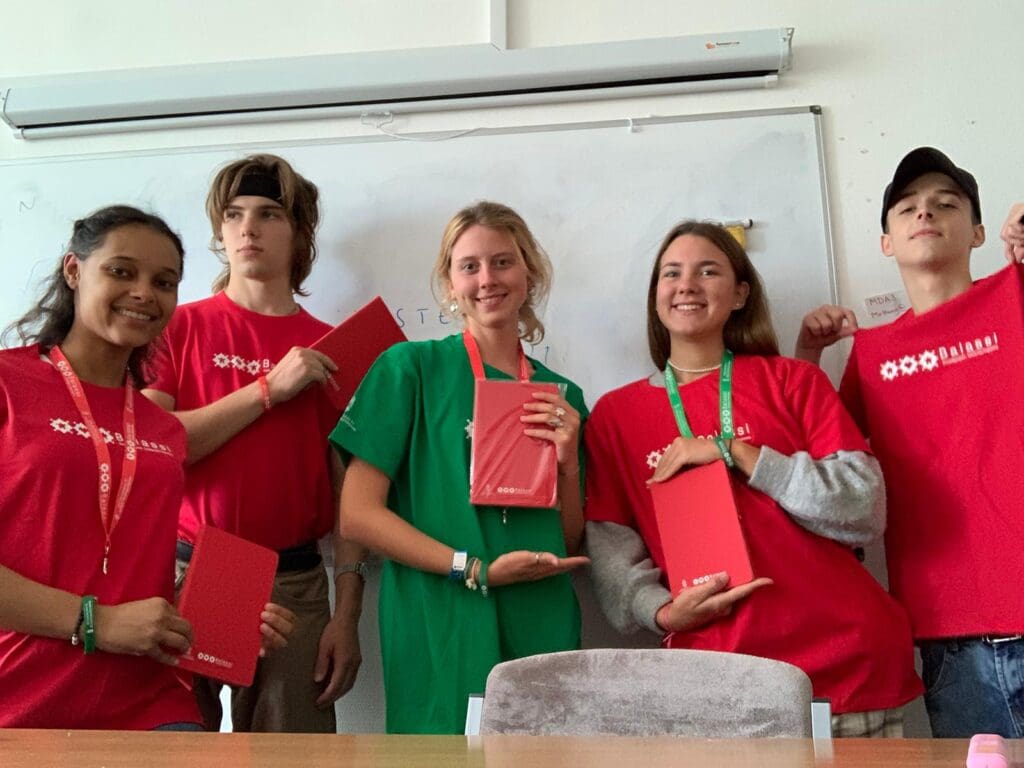
You didn’t get any culture shock, correct?
I think it was much easier for me because I spoke Hungarian and had been to Hungary several times before. If I had to mention one thing that was difficult to get used to, it would be the cumbersome bureaucracy: waiting in line for hours at the government office where the attitude of the officials was not always the most pleasant… Even for me, it was difficult to get things done, open a bank account, buy a phone, etc. And I know how difficult it was for the other participants. And there was a lot of bureaucracy related to the program itself, especially at the university. I admit that it is not easy for them as each of us have a different situation. Some of us are Hungarian citizens and some are not; some speak Hungarian and some don’t, and that makes things difficult. They have tried to help us, but they have not always been able to do it on an individualized basis.
The biggest culture shock that I had was positive. I have always loved to visit Hungary in the summer, because I experienced how fantastic public transport is. It’s easy to get around, and you never have to walk more than fifteen minutes to catch a bus, subway or tram. In America, until I was nineteen, my parents had to take me everywhere, even to the university, whereas in Hungary, even kids as young as 12–14 are on their own on trams, subways, going back and forth, so there’s much more freedom and safety here. And I also like the looseness and spontaneity of the relationships. My experience in the US was that if I wanted to meet a friend, we had to arrange three weeks in advance a cinema or a museum visit and get in the car and drive at least an hour to meet each other. Here, all we do is agree where to meet in half an hour. Compared to Los Angeles, Budapest has a very livable and safe downtown area, I just love it.
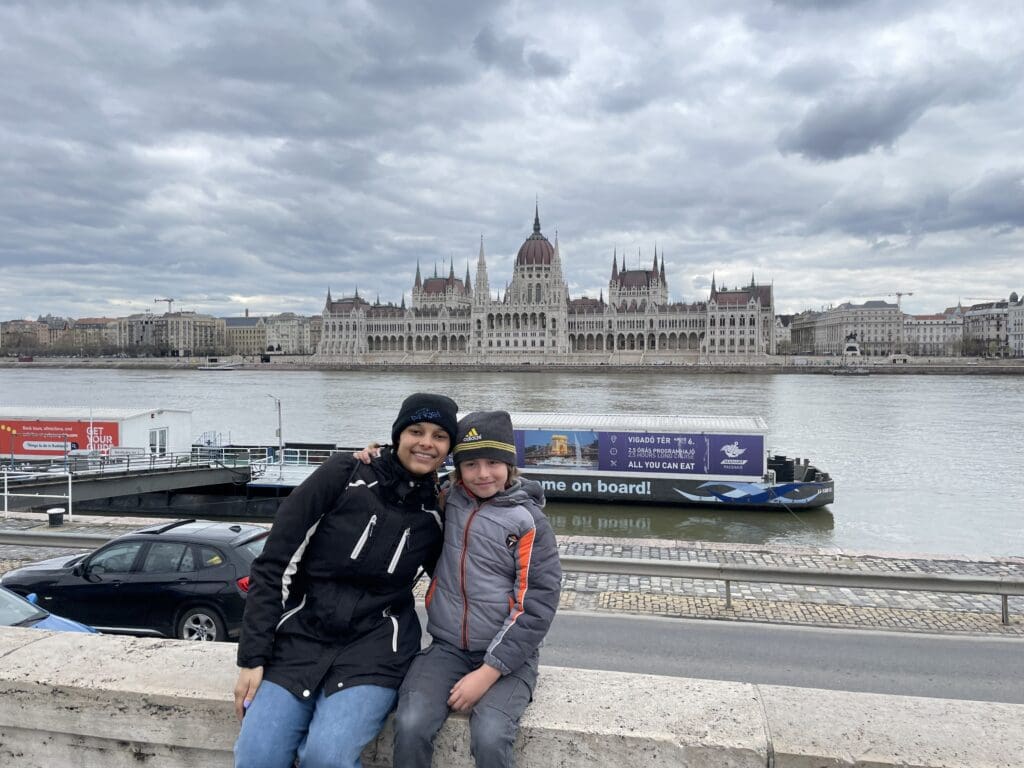
What kind of activities did you participate in? How did you get to Transylvania?
In the second semester, there were no more Covid restrictions in place, we could go everywhere, so we went to a lot of concerts and movies. I know that during the Balassi Scholarship, there were many people who traveled around Europe, but I preferred to stay in Hungary and go to Transylvania, because I wanted to experience it more deeply. We spent a lot of time in Esztergom, where a friend of mine from Los Angeles bought a house and we went to help her renovate it several times a month. I also visited Szeged and Lake Balaton. My friend’s family from Los Angeles are originally from Brasov, Transylvania, her grandparents have an apartment there and were spending that summer there, so they invited us, too. We had planned a five-day hike in the Fogaras Mountains, but when we saw the price of the train ticket, we decided to stay longer and bought only a one-way ticket. After the hike, we spent a few more days in Brasov, and in the meantime my boyfriend called an Argentinian Hungarian friend living in Budapest who visited Transylvania a lot, mainly through folk dancing, and he called some Transylvanian families for help, so we ended up spending a week and a half in Kovászna and a week in Csíkcsomortán. We had a great time everywhere.
And what was it like for you to study at Corvinus? Did you find what you dreamed of?
I am studying Business and Management and I really like it. At the beginning, we had to run around a lot to get everything done, but once we figured out how the system works, everything went well. I’ve made new friends here at Corvinus, the teachers are good, I’m having a great time. As Balassi scholars we lived in shared dorms, but here we could choose between dorm accommodation or opt for an allowance and pay for our own accommodation. My boyfriend’s parents have an apartment at Oktogon, so we live there. The Diaspora Programme organizes incredible programs for us, at least three–four per month, but sometimes even seven or eight per month, and they are all great. For example, a month ago we had a karaoke night, yesterday we went bowling, on 15 March we went for a walk in the Castle, to the Pilvax Café and to the National Museum. There is a Hungarian language club, film screenings, ice skating, sports day, beach fun and a closing dinner at the end of each semester. We also have four or five long weekend activities: in February we went to see the so-called winter farewell ‘busó march’ in Mohács, next week we’re going to Pozsony (Bratislava, Slovakia). We always have a great tour-guide, eat out in restaurants, stay in hotels and everything is free for us. We also meet other Diaspora scholars. We have a community of people we already know and it’s nice to meet them periodically. There are many people in Budapest who came here on one of the scholarships but stayed further; I know a Balassi scholar who has been here for ten years. We also regularly meet Hungarian friends from abroad, including some who were in America through the Kőrösi Csoma Programme (KCSP), and we have remained very close afterwards. We are part of an international Hungarian community, with whom we organize even 4th of July parties, for example.
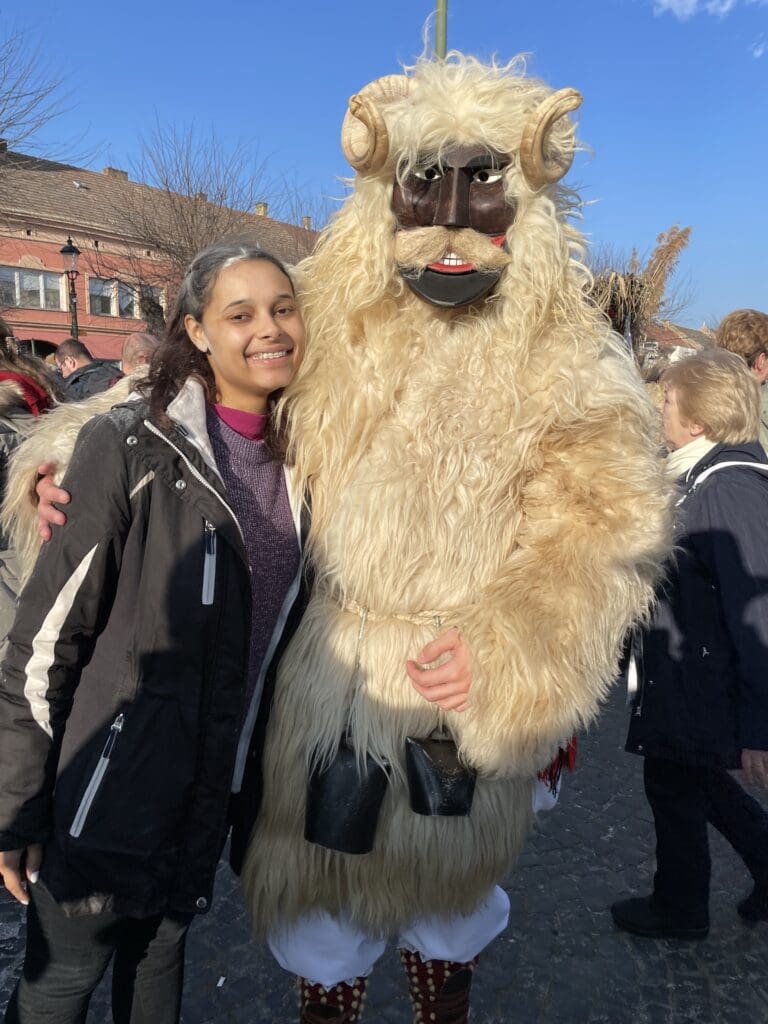
You can share not only your Hungarian, but also your American identity with them, right?
Yes! So, anyone who is new here and wants to join such an international Hungarian community can find friends very quickly.
You are in the middle of your fellowship period. What are your plans for the future?
We don’t know what will happen after the end of the scholarship yet, but I know that I don’t want to live in America again for long. I feel much freer, safer and comfortable here, I have a much better life and many more friends whom I can meet more often. By the way, now I have more Hungarian American friends from Los Angeles here than I do over there. Not a day goes by without an invitation or a program. We often have to choose, because we are invited to several places at the same time. So as a university student, it’s great to live in Budapest. Obviously, I don’t know what it would be like to work here yet, but I plan to try it. Before that, I might go back to the US for a year or two, maybe complete a master’s degree, and I’d also like to spend some time in Argentina and travel around, but in any case, I think we’ll certainly be back in Hungary in a couple of years.

